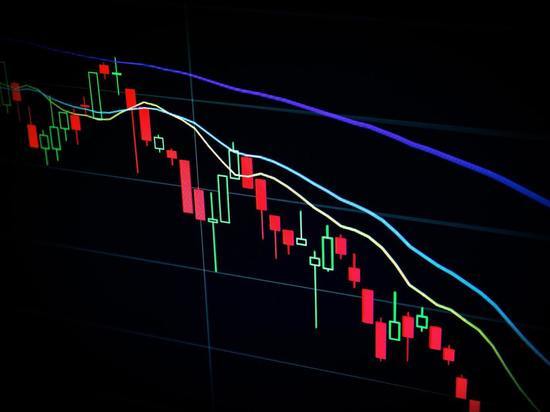The Russian stock market could not stand the mobilization: the fall rating was headed by Gazprom
[ad_1]

Quotes of domestic “blue chips” on average fell by 10%
Vladimir Putin’s statement about the partial mobilization of the population led to the collapse of the Russian stock market: the Mosbirzhi and RTS indices collapsed by an average of 10%. Securities of extractive enterprises fell in price to the greatest extent. This is the strongest drop in the market over the past six months. At the same time, experts warn that a real collapse of the “blue chips” may not be far off.
At first, experts tried to explain the noticeable failure of the domestic stock market by internal factors. The most unpleasant news for the market was the information about the government’s intentions to impose an additional tax on oil, gas and LNG exporters. Basically, additional fiscal levies should affect the state raw materials industry, so the stock quotes of most mining companies have lost more than one tenth of their value in just one trading session. The fall rating was headed by the shares of Gazprom. Then, the participants of exchange trading were affected by the news that the Russian President had signed a decree on a partial mobilization in the country. After that, not only energy, but all the other blue chips went down: according to analysts at BCS Mir Investments, there is not a single stock left in the Moscow Exchange index, the value of which has not lost less than 2% in recent days.
Experts agree that the geopolitical background will continue to determine the degree of volatility of Russian stocks on stock exchanges. This will inevitably provide an increased range of fluctuations in domestic “blue chips” quotes.
Moreover, the owners of companies certainly use every opportunity to save on employees. As experts predict, the share of Russian organizations that provide their employees with various corporate discounts, in particular, access to a variety of household preferences, as well as to professional development, has already significantly decreased over the past year. “The number of companies that pay for voluntary medical insurance for employees has fallen by a third in three years,” estimates Sergey Suverov, investment strategist at Arikacapital Management Company. “Meanwhile, the conscription of young people for military service will be associated with the passage of a medical examination.”
“After the start of a special military operation, our economy is already mobilized, but without harming certain specific industries,” says Nikolai Vavilov, a specialist in the strategic research department at Total Research. – The main industry, where no components of foreign production should remain, is the military-industrial complex of Russia. This is mobilization in the economy. The main forces will be directed precisely to the defense of the state.”
How will events develop in the stock market in connection with this? The government currently faces the difficult task of balancing spending. Securities, which are owned by both the state and private investors, are now showing panic sales. Probably, after the announcement of the next sanctions against Russia, the stock market will begin to recover, as it already happened this spring.
Experts believe that with the current fall in the stock market, it will have its bottom, from which it will be possible to push upwards and emerge. According to Natalia Milchakova, a leading analyst at Freedom Finance Global, Russia’s fiscal and monetary policy is well thought out, so the financial, tax and banking sectors remain stable: the ruble quotes have not left the corridor of 60-61 rubles per dollar and per euro for many days. .
New sanctions are possible, but, according to the expert, they will no longer cause a panicky response in the stock market. The worst thing that could happen – the EU oil embargo against Russia – has already become a fact and is unlikely to bring down our market again.
As for the foreign exchange market, in all likelihood, against the background of partial mobilization, the Ministry of Finance and the Central Bank will not go too far on the occasion of exporters and weaken the ruble too sharply. The authorities are not yet talking about a return to the budget rule, and the authorities clearly do not need an aggravation of public discontent if there is a new collapse of the national currency and the dollar rises to 100 rubles.
In any case, the future state of financial markets depends, first of all, on fundamental factors. — and above all the state of the domestic economy. “It is necessary to provide the national economy with reliable orders as soon as possible, first of all, the defense industry, which will serve as a pretext for the emergence of new jobs. All this summer, unemployment in Russia has remained at a historically low level of 3.9% of the working-age population. It is possible that the mobilization of the economy that is now noticeable took place a long time ago. If GDP falls this year by no more than 2.5%, then consumer price inflation by the end of the year will be in the corridor of 12-13%, and the dollar will not overcome the bar of 70 rubles,” — says Natalia Milchakova.
[ad_2]
Source link






